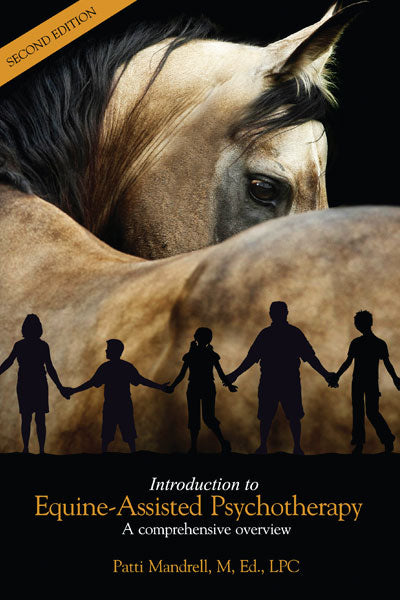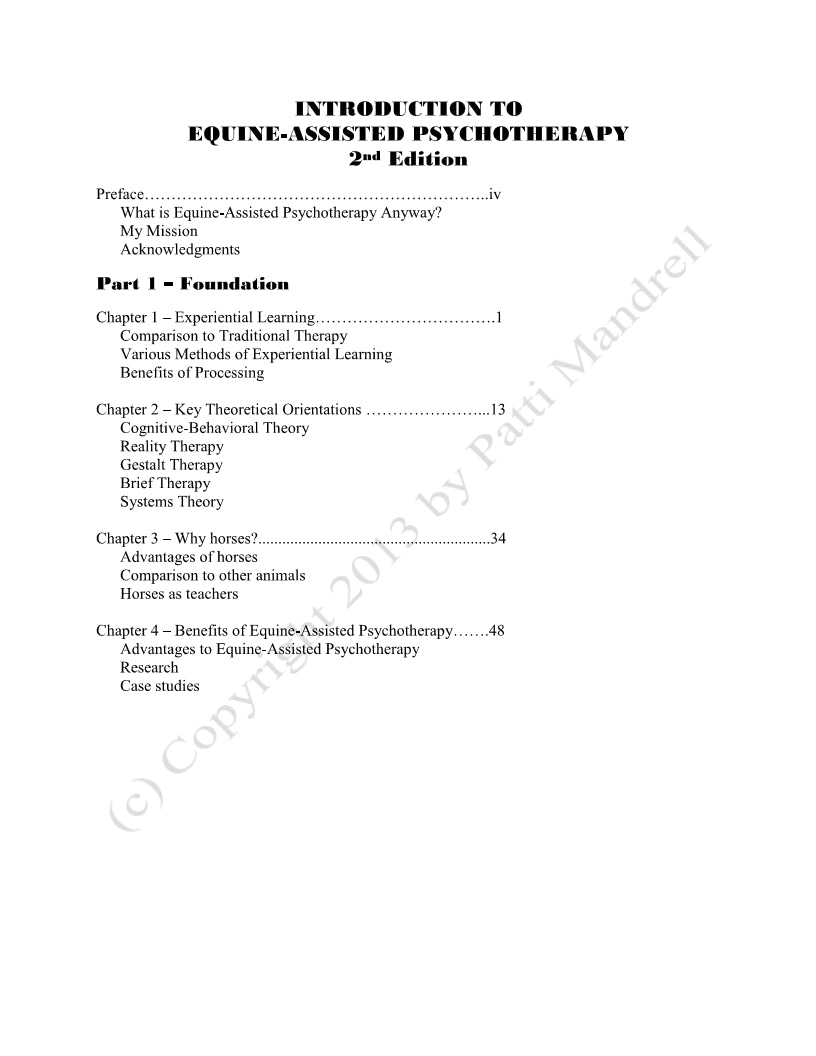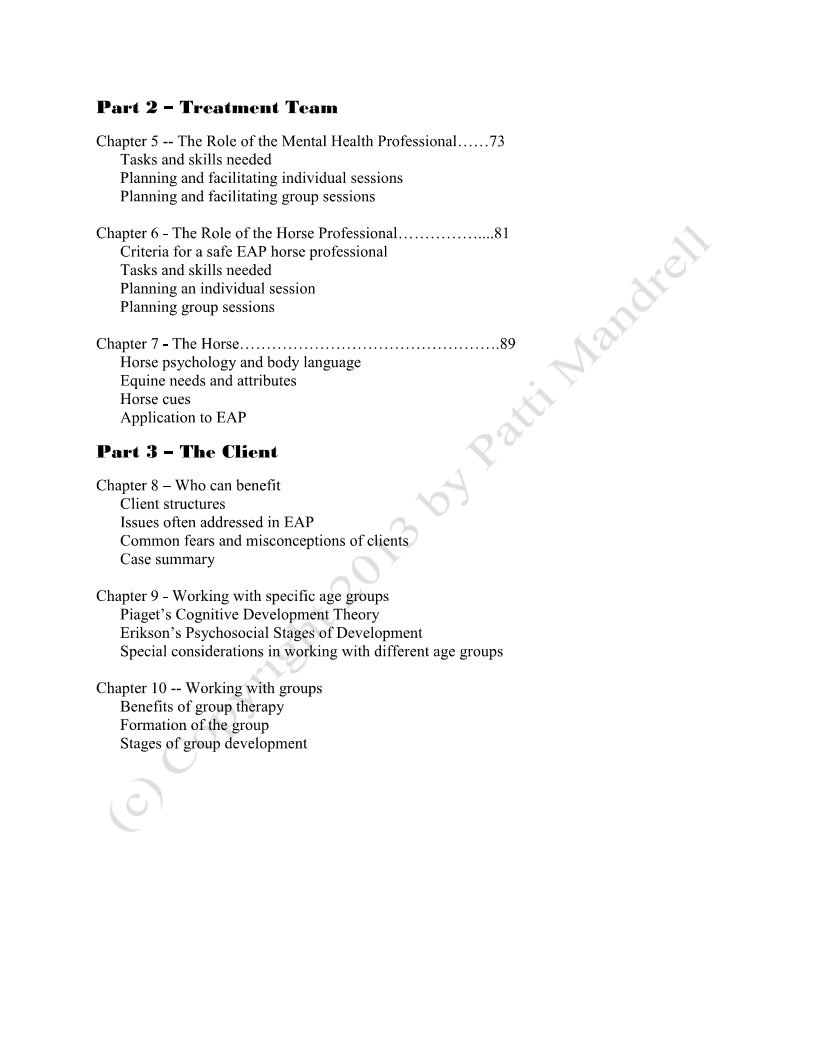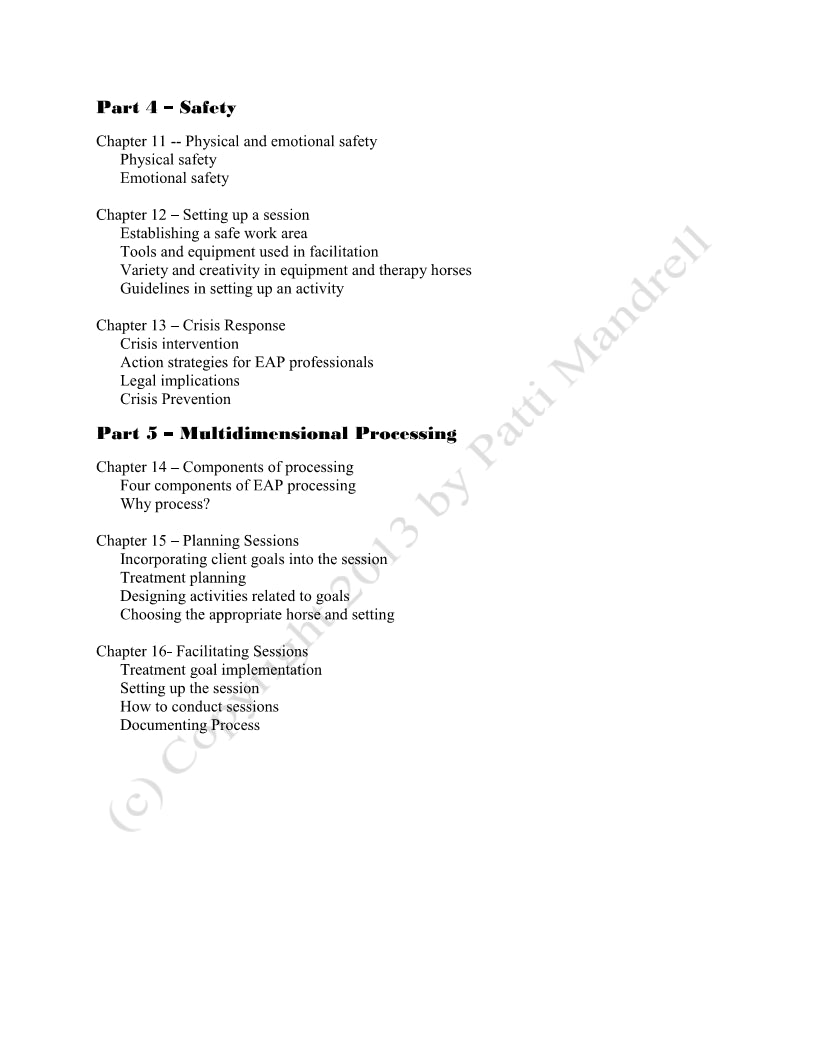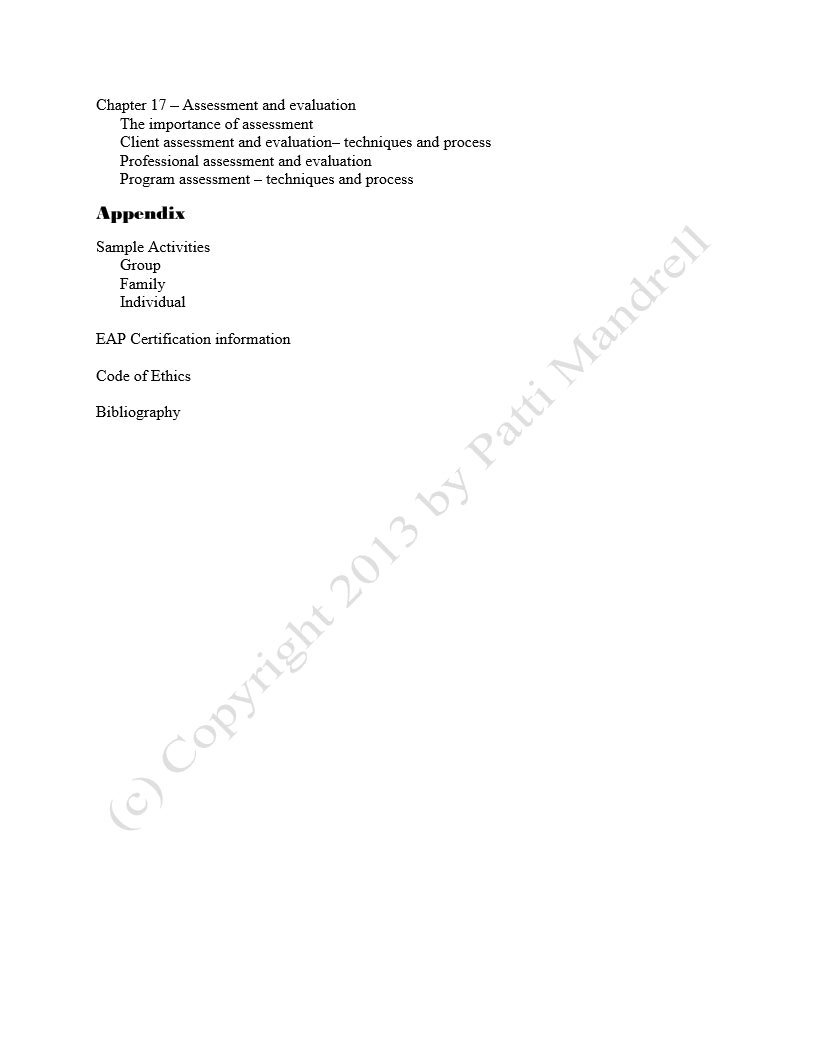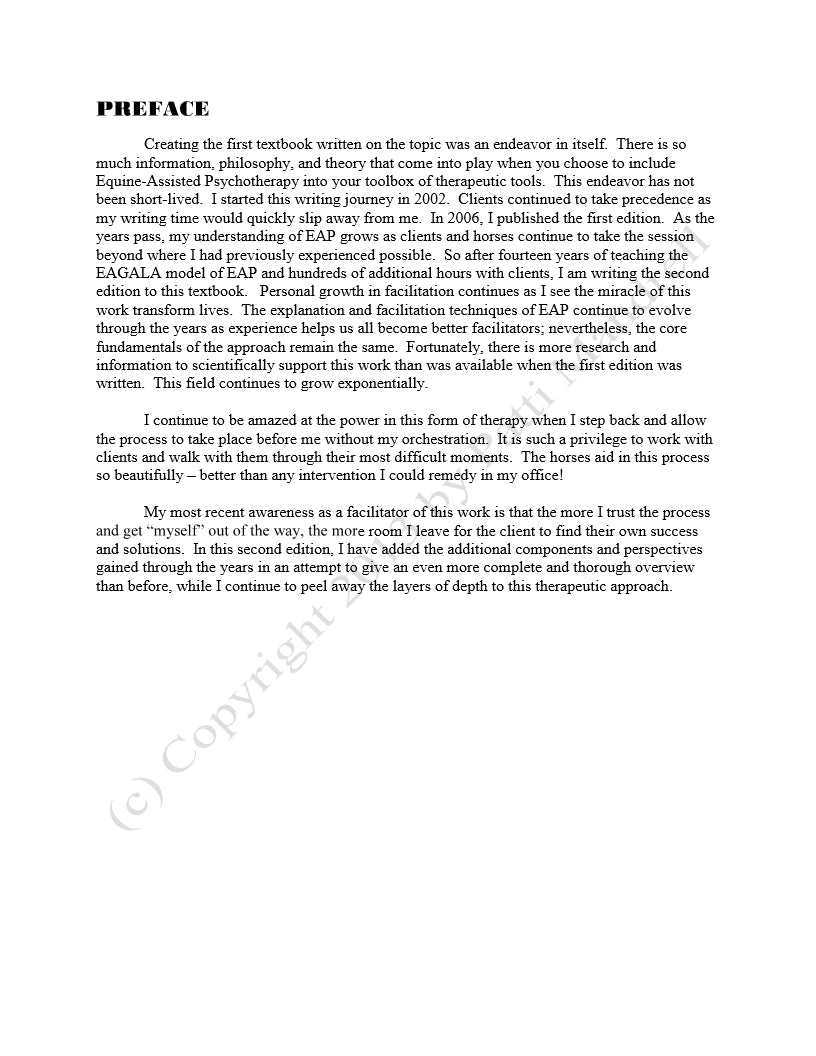Eagala
Introduction to Equine-Assisted Psychotherapy: A Comprehensive Overview (2nd Edition)
Introduction to Equine-Assisted Psychotherapy: A Comprehensive Overview (2nd Edition)
Couldn't load pickup availability
By Patti Mandrell, ME.d. LPC, EAPIII
Excerpt from the textbook….
What is Equine-Assisted Psychotherapy Anyway?
This question has been asked more times than I can keep track of. I have spent the past seven years trying to explain to others what Equine-Assisted Psychotherapy (EAP) is and what it is not. “I’ve got a horse that needs some therapy,” they would laugh and say as they walked by. No, EAP is not psychotherapy for horses although I have seen some horses become more confident and expressive after being involved in several EAP sessions. The others would quickly interrupt as I attempted in my explanation of EAP saying, “Oh yeah, I have a friend whose daughter is doing that for her physical therapy.” Again, the answer is no – EAP is not the same as hippotherapy or therapeutic riding. Nevertheless, I have seen many people with disabilities benefit from EAP. “Oh, so you teach the kids to ride. I know horses are good for teaching kids about responsibility and discipline.” You are right; those are some benefits to horsemanship. However, EAP is not horsemanship nor is it about riding a horse at all!
So, you may be asking yourself now, “What exactly is Equine-Assisted Psychotherapy?” I’m so glad you asked. It will take the next seventeen chapters to explain to you what EAP truly is. By definition, EAP is a dawning approach to professional counseling that helps clients of all ages address behavioral, emotional, spiritual, and relational issues using horses as an intervention tool. EAP is a non-threatening and action-oriented team approach to counseling including a licensed counselor, horse professional, and horse(s). Equine-Assisted Psychotherapy helps clients cope with change and develop positive means of facing life’s struggles through the use of team-building activities with horses.
Many are still confused even after the definition is heard and the explanation has been made about what EAP is not. The best explanation for understanding it is to see it in action.
My Mission
So, knowing the amazing impact the horses are having for clients and fully understanding the complexity of Equine-Assisted Psychotherapy (EAP), I felt compelled to be an active participant in the promotion of EAP as it continues to gain support and credibility worldwide. My mission in writing Introduction to Equine-Assisted Psychotherapy is to:
present you with a clear picture of how Equine-Assisted Psychotherapy can work as an
interventional tool for clients
provide you with a solid foundation of the theoretical and philosophical backbone of EAP
assist you in distinguishing why horses over other animals
dispel some of the misconceptions and myths about Equine-Assisted Psychotherapy,
particularly the ones that confuse EAP with horsemanship, hippotherapy, and/or
therapeutic riding
aid in the respect for a balanced team consisting of horse professional, therapist, and horse
offer information, not certification, about the versatile applications of Equine-Assisted
Psychotherapy
contribute a quality introductory text to the EAP field
After reading this book, my goal is that you will hold a greater understanding and appreciation for the field of Equine-Assisted Psychotherapy. I feel confident that with the knowledge gained through reading this text combined with the experience gained through the Equine-Assisted Growth and Learning Association’s certification program (Eagala), you would hold a very complete understanding and ability to apply this therapeutic tool. Mastery is only achieved through practice – no book can give you that level of expertise.
Share
